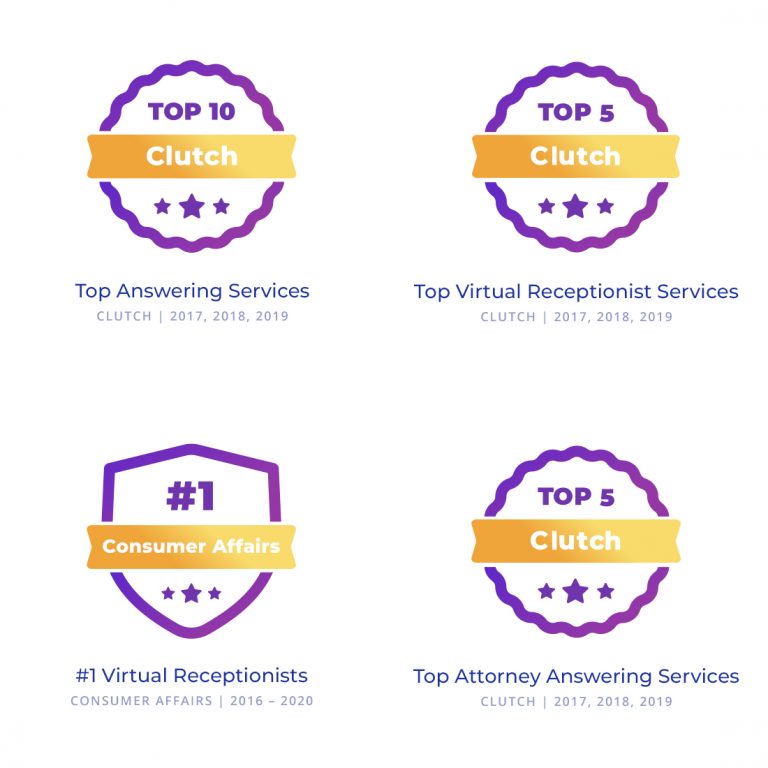
As a virtual receptionist service, we hear a lot of questions about business phone numbers. People often wonder where they should list their company phone number, how much it even matters, and how to make sure the right people can find the phone number they need, when they need it.
You asked, and we answered. We’re here to help! We’ll share all the important places you should list your phone number so you can rest easy knowing that your customers, potential customers, referrals, and partners can effortlessly get in touch with your business.
Why Is Listing My Company’s Phone Number Important?
It’s the modern age. We have social media, web forms, email, chat…the internet! Why do we even care about phone numbers anymore?
It may surprise you, but a 2019 study by CFI Group shows that more than ¾ (76%) of all consumers still prefer the traditional medium of phone calls to reach customer support. In fact, 92% of all customer interactions still take place over the phone. That’s customer support, troubleshooting, sales, and more.
When you think about it, it makes sense. Self-service is great when you have a simple, broad question. Chat or social media is effective for requesting more information or bringing a problem to attention. But when you need something solved—really and actually solved—you hop on the phone.
The phone call is where you solve complex, unique, or confidential issues. It’s the channel where you can have HIPAA-compliant conversations, soothe an angry customer, or make a real connection with a potential client.
If it’s an easy and impersonal issue, you may not need a phone call. But the fact of the matter is, most situations aren’t easy and impersonal which means your customers are going to want to call.
Consumers may not technically be flipping through the Yellow Pages like they used to, but that’s just because the Yellow Pages have gone digital. Now they’re “flipping” through the internet.
According to Forbes, creating a healthy, responsive business starts with a business phone number. Businesses may even want multiple phone numbers such as toll-free numbers, vanity numbers, use-specific numbers, and local numbers.
Once you’ve got your phone number(s) it’s time to make sure your customers can find you.
Where Should I List My Company’s Phone Number?
Your Website
This may seem obvious, but your phone number has to be on your website—preferably front and center. It’s the first place your customers go to get information about your business.
Consider your website your virtual storefront. It should feature all the key information customers need to know about your unique business. This could be anything from your hours to pricing, locations you work, projects you do or features of your product, and—of course—how to contact you. And as we’ve discussed just having a contact form or an email won’t cut it.
Pro tip: Make sure your phone number is extremely easy to find on your website. This should include in the header and footer that’s on all pages and on your About and/or Contact Us page.
Google My Business
Google My Business is reported as the world’s most visited Google tool—as it’s integrated into Google Search itself. According to Hootsuite, it currently holds “more than 92% of search engine market share.” Essentially, it’s essential.
Google My Business allows you to make an easily accessible profile for your business, quite literally, at the click of a button.
Think of your journey as a consumer. When you want to research a business, you’re likely to start your search with a quick Googling of the company. This search will quickly bring you to the Google results page, with a knowledge graph on the right-hand side that showcases a quick snippet of key information (without scrolling too far down the rabbit hole). Generally, this will include a location, company phone number, and a picture of a business. Google My Business is essential to any business operating in digital spaces (which, in the modern age, should be all businesses).
Pro tip: Listing your company’s phone number on Google My Business is also an impactful first step in your search engine optimization (SEO) efforts. Make sure your number is right and consistent. If it changes, update it on Googly My Business first!
Your Social Media Channels
You probably already have social media channels set up. They’re fundamental building blocks for modern business and represent opportunities to connect with your customers and for them to contact you. Where possible, make sure you always list your company’s phone number in your bio, captions (when relevant), and in your about information.
While the profiles all look different, they all have room for your company’s phone number.
Additionally, LinkedIn Company Directory, Facebook Pages, and Instagram for Business all serve as online directories with various domain ratings (you can check these out on HubSpot).
On Your Partners’ Pages
Do you have partners? Customers who send you regular referrals? Influencer relationships? Providing a phone number on their websites (alongside a link to your website, of course) is a great opportunity to spread your influence. Listings on partner sites are great opportunities to target niche audiences, grow your relationship with your partners, and connect with their audience—and a phone number gives them a direct way to contact you.
If you’re running ads on their sites, it might make sense to include your phone number in them (like a podcast ad or a webinar sponsorship) or on the landing page (like for a display or text ad).
Pro tip: Even if the phone number isn’t the main call to action of an advertisement, it’s always worth including. Potential customers who aren’t ready to sign up and fill out a form may prefer to call to ask questions directly or get more information. More communication channels are usually better!
Other Online Directories & Websites
Of course, those are the most obvious places to list your phone number. Beyond those already listed, there are numerous online directories to investigate. Broad ones like Apple Maps, Bing, Yelp, and Better Business Bureau are all worth investigating for your business.
Then there are the smaller, industry or location-specific directories or websites to consider. Some examples of what this could look like include:
- Small businesses in Las Vegas, Nevada listed in the Vegas Business Journal
- Law firms registered with the Missouri State Bar
- Nextdoor for local B2C businesses
It’s worth exploring the more niche directories, apps, and websites that would make sense for your business. They may get less traffic overall, but the people using those tools are looking for businesses like yours!
Protip: Start with one or two niche directories and build from there. You don’t need to be everywhere, just where your potential customers are looking!
After the Call
Of course, posting a phone number is only helpful if someone is there to answer the call. If you get your phone number listed and all the calls start pouring in, but you’re not answering, you’re missing opportunities. There’s no way around it.
That’s where Abby Connect’s virtual receptionists can help—in fact, you can say it’s our specialty! We provide you with a team of 5-10 dedicated receptionists, handling your calls from our Las Vegas offices, who answer the phone like they’re sitting in your office.
We’ll answer, transfer, take messages, perform intake, and even schedule appointments on your behalf. You decide when you want to receive a call (like when a customer calls!) and when you don’t (when a solicitor calls!).
Get your phone number listed and accessible, and we’ll help you turn those callers into loyal customers. Get started today!

